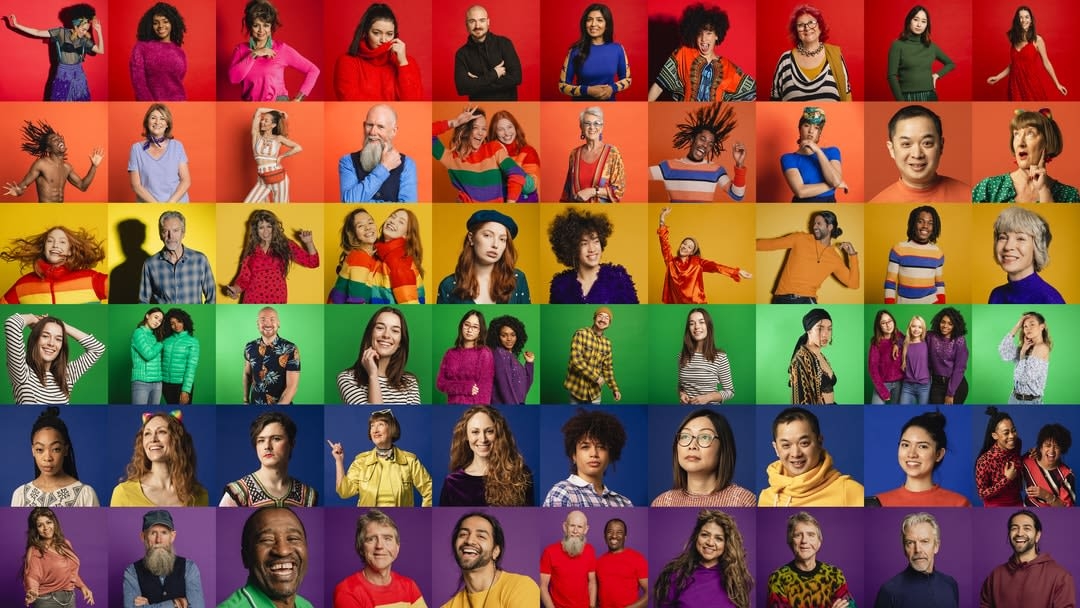The Power of Visibility: How LGBTQ+ Voices Are Rising in the Aftermath of Trump's 2024 Election

In the wake of President Donald Trump's 2024 election victory, the LGBTQ+ community has faced increased challenges due to policy changes and societal shifts. Despite these adversities, maintaining visibility on social media has become a crucial strategy for empowerment, community building, and advocacy. Below are notable examples that illustrate the importance of this visibility in the context of the LGBTQ+ community's ongoing fight for equality and protection.
Policy Changes Impacting the LGBTQ+ Community
-
Executive Orders and Policy Shifts: The Trump administration has introduced several executive orders affecting the LGBTQ+ community, such as:
-
Executive Order 14168: This order, signed in January 2025, mandates that gender be recognized as a binary category determined at birth, effectively withdrawing recognition for transgender individuals and eliminating funding for gender-affirming care. (Wikipedia)
-
Executive Order 14183: Issued in January 2025, this order reinstates the ban on transgender individuals serving in the U.S. military. (Wikipedia)
-
Executive Order 14187: This order prohibits gender-affirming care for minors under the age of 19, leading to the withholding of federal funds from hospitals providing such treatments. (Wikipedia)
-
These policies have had tangible impacts, including the erasure of LGBTQ+ resources from federal platforms (them.us), challenges to healthcare access (Wikipedia), and the disruption of transgender military service (People).
The Role of Social Media in LGBTQ+ Advocacy and Support
In this challenging political climate, social media has played a pivotal role in offering support, mobilizing activism, and ensuring LGBTQ+ visibility. Some key examples include:
1. Drag Performers Confronting Homophobia
In Las Vegas, drag performers Suzie Toot, Onya Nurve, and Lana Ja'Rae confronted a homophobic heckler during a public event. The incident was shared widely on social media, sparking conversations around bigotry and the importance of solidarity in the LGBTQ+ community. The visibility of this confrontation became a powerful example of resistance and unity. (Them.us)
2. Nightclub's Stance Against MAGA Attire
Badlands, a prominent LGBTQ+ nightclub in Sacramento, California, banned patrons from wearing "Make America Great Again" (MAGA) attire after discomfort was expressed during a visit by the Log Cabin Republicans. This decision was publicly shared on social media, emphasizing the club's commitment to creating safe and inclusive spaces for LGBTQ+ individuals. (Them.us)
3. Artists Resisting Funding Restrictions
Following an executive order limiting LGBTQ+ content in the arts, many LGBTQ+ artists and theater groups faced significant challenges. These organizations used social media to challenge the restrictions, mobilize support, and share their efforts to fight for artistic freedom. For example, the ACLU filed a lawsuit against the order, which was widely discussed online. (The Guardian)
4. Formation of LGBTQ+ Coalitions
Over 70 LGBTQ+ organizations released a joint statement of solidarity following the election, advocating for unity and resilience within the community. The statement was shared across social media, which not only amplified the message but also reassured LGBTQ+ individuals that they were not alone in their struggles. (Them.us)
5. Youth Voices and Advocacy
LGBTQ+ youth have increasingly turned to social media to express their concerns, find solidarity, and organize. Platforms like TikTok and Instagram have become spaces for LGBTQ+ youth to voice their experiences, raise awareness, and advocate for change, especially in response to policies that negatively impact their rights. (Teen Vogue)
Moving Forward
Despite the challenging political climate after the 2024 election, social media has proven to be a vital resource for the LGBTQ+ community. It provides a platform for individuals to share their experiences, build connections, and organize efforts for change. By remaining active online, LGBTQ+ individuals ensure their voices continue to be heard, empowering each other and fostering resilience. Social media has become a powerful tool for advocating for rights, spreading awareness, and creating a sense of solidarity in the face of adversity, reinforcing the strength and unity of the LGBTQ+ movement.
- Art
- Business
- Causes
- Crafts
- Community
- Dance
- Drinks
- Educação
- Fashion
- Film
- Fitness
- Food
- Jogos
- Gardening
- Health
- Início
- LGBTQ+ News
- Literature
- Music
- News
- Nature
- Networking
- Oddities
- Outro
- Party
- Politics
- Religion
- Science
- Shopping
- Sports
- Theater
- Wellness



